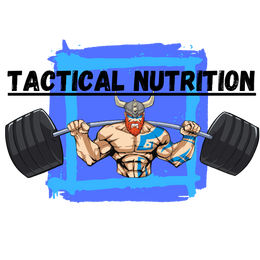Introduction
Knee pain, sore shoulders, stiff backs—for athletes and first responders, joint discomfort is often seen as “just part of the job.” But ignoring joint health can cut careers short, limit performance, and increase the risk of long-term injury. That’s where collagen supplementation comes in.
Collagen is the most abundant protein in the human body. It’s the glue that holds tendons, ligaments, cartilage, and connective tissue together. As we age, collagen production declines, leading to weaker joints and slower recovery. For athletes, firefighters, police officers, and EMTs who push their bodies daily, supplementing with collagen can be the difference between staying strong and being sidelined.
What Is Collagen, and Why Does It Matter?
Collagen is a structural protein that gives strength and flexibility to connective tissue. Without it, tendons and ligaments lose resilience, cartilage wears down, and joints become vulnerable to pain and injury. By supporting connective tissue integrity, collagen helps athletes and tactical professionals withstand the physical demands of training and the job.
Benefits of Collagen for Athletes and First Responders
Joint Support and Pain Reduction
Multiple studies show collagen supplementation helps reduce joint pain, particularly in athletes and individuals with high physical demands. For firefighters climbing stairs in full gear or police officers sprinting in heavy boots, this translates to fewer aches and faster recovery.
Injury Prevention
Stronger connective tissue means fewer injuries. By reinforcing ligaments and tendons, collagen lowers the risk of sprains, strains, and overuse injuries.
Bone and Cartilage Health
Collagen contributes to bone density and cartilage strength. This is critical for long-term joint durability, especially for tactical professionals with physically demanding careers.
Recovery and Longevity
Collagen supports the repair of connective tissue damaged during training or work. Over time, this can extend careers, keeping athletes and first responders active and effective longer.
How to Use Collagen Supplements
Collagen peptides (often in powder form) are the most effective and convenient way to supplement. They dissolve easily in water, coffee, or shakes.
-
Recommended dose: 10–15 grams per day
-
Timing: Anytime, but many prefer post-workout or in the evening
-
Synergy: Pairing collagen with vitamin C enhances absorption and collagen synthesis
Collagen vs. Other Protein Supplements
While whey or plant protein primarily supports muscle growth, collagen is more targeted toward connective tissue. The two are complementary, not competitive. A tactical athlete may use whey or plant protein for muscle recovery and collagen for joint and tendon support.
Why Collagen Matters for Tactical Athletes
First responders carry extra weight, move awkwardly under stress, and work in gear that strains joints. Over time, these demands wear down connective tissue. Collagen provides a proactive way to strengthen joints, reduce pain, and stay durable. For a firefighter climbing stairs, a police officer chasing a suspect, or an EMT lifting patients, healthy joints are as essential as strong muscles.
Conclusion
Joint pain and stiffness don’t have to be inevitable. Collagen supplementation offers a simple, effective way to support joint health, prevent injuries, and extend performance longevity. For athletes chasing peak performance and first responders protecting communities, collagen is more than just a supplement—it’s an investment in long-term resilience.




